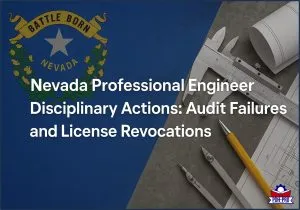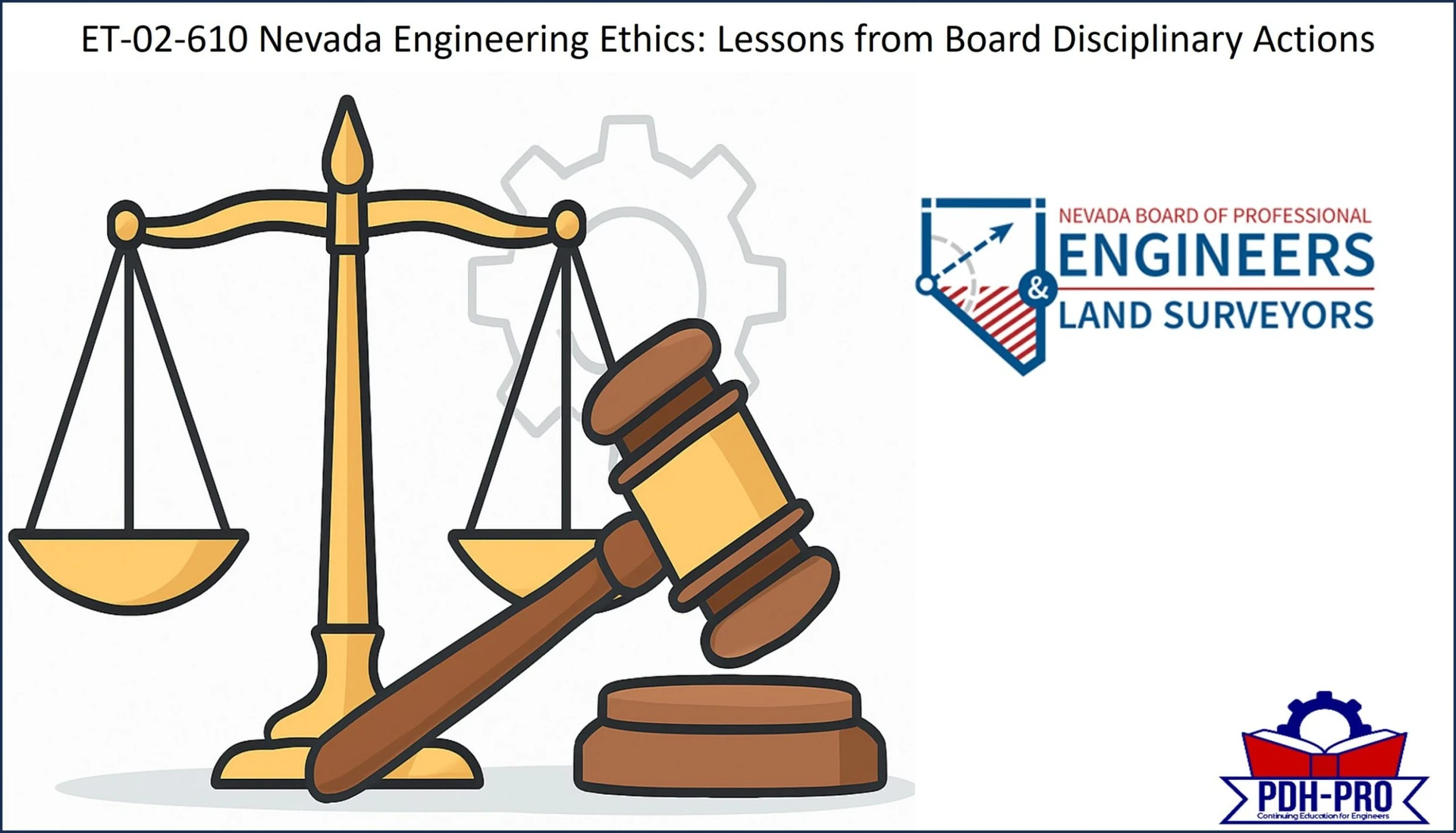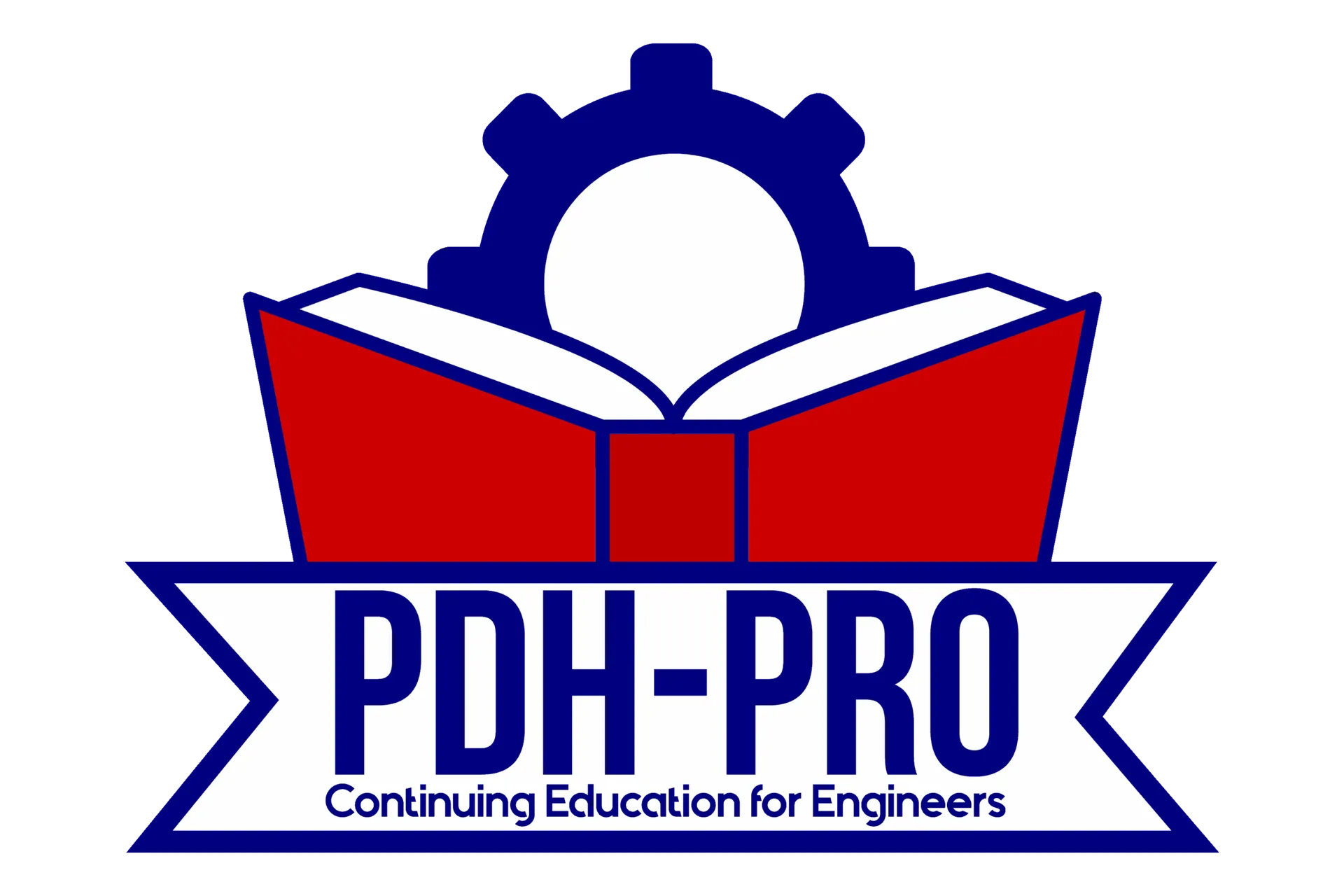
Written by: Jordan Ellis, P.E.
Created: Jul 3, 2025 | Last Updated: Oct 28, 2025
Professional Engineers (PEs) in Nevada are held to high standards of ethics, competence, and responsibility. When these standards are violated, whether through negligence, misrepresentation, or failure to follow board rules, the consequences can be serious. The Nevada State Board of Professional Engineers and Land Surveyors enforces these standards to protect the public and uphold the integrity of the profession.
This article reviews recent disciplinary actions taken by the Board from 2023 to 2025. It provides real case examples, summarizes common types of violations, explains the disciplinary process, and offers practical guidance for engineers looking to safeguard their license and professional reputation.
Check out my article What are the Most Common Ethics Violations for Professional Engineers. Nevada enforcement activity often reinforces the critical importance of the principles outlined in the professional engineer disciplinary actions and license revocation analysis, with a strong emphasis on the consequences of inadequate documentation.
Ethics Course for Nevada Engineers

This one-hour online course helps Nevada Professional Engineers earn guaranteed PDH credit while deepening their understanding of ethical responsibilities and state board expectations. By reviewing real disciplinary cases, participants will learn to identify common violations, navigate the Nevada Board’s disciplinary process, and apply practical strategies to maintain compliance and protect their professional license. Ideal for engineers committed to upholding public safety and integrity in Nevada.
What Constitutes a Disciplinary Violation in Kentucky
Nevada’s Board of Professional Engineers and Land Surveyors enforces rules designed to uphold public safety, trust, and professionalism. Violations generally fall into these categories:
- Failing to Maintain Continuing Professional Development (CPD)
PEs must complete and document 30 Professional Development Hours (PDH) every two years. Failure to respond to audits, falsely certifying completion, or submitting insufficient PDH can trigger serious consequences, even credential suspensions or revocations. - Practicing Without Proper License or Business Entity Authorization
Whether due to late renewal or an expired business registration, operating without valid licensure is grounds for board action, including license revocation or mandatory surrender. - Unlicensed or Unauthorized Firm Practice
Certifying work under an unregistered firm, or stamping work outside one’s scope or authority, violates board regulations and jeopardizes license standing. - Ethical Violations & Misrepresentation
This includes certifying work one did not personally supervise, misrepresenting completion of CPD hours, falsifying documents, or failing to act as a faithful agent for clients. These actions can result in reprimands, fines, suspension, or revocation of license. - Misconduct Revealed by Investigations or Complaints
Including non‑response to audit notices or board inquiries, which may result in default orders and license cancellation if the PE fails to participate.
Failing to respond to a CPD audit can escalate a simple deficiency into a major violation, a lesson demonstrated in an Ohio PE board action where an engineer ultimately surrendered his license after ignoring audit correspondence. Many of the violations seen in Nevada overlap with those featured in Indiana board decisions on professional engineer discipline, especially concerning failures in project supervision and technical accuracy.
Types of Penalties Issued to Nevada Engineers
The Nevada Board of Professional Engineers and Land Surveyors has broad authority to issue disciplinary actions when a licensee violates statutes or board rules. The severity of the penalty typically corresponds to the nature and frequency of the violation.
Common penalties include:
1. Reprimand
A formal statement of disapproval issued by the board. This is often the lightest penalty and may be used for first-time or minor offenses, such as failing to respond to a CPD audit in a timely manner.
2. Fines
Civil penalties are commonly assessed, ranging from $250 to $5,000 depending on the violation. Fines are often paired with other sanctions and serve both punitive and deterrent purposes.
3. Probation or Conditional Licensure
In some cases, the board may allow the engineer to retain their license under specific conditions. This may include completing additional training, submitting to audits, or agreeing not to repeat the conduct.
4. Suspension
The engineer’s license is temporarily withdrawn, typically for more serious or repeated violations. The suspension period may be fixed or contingent upon meeting certain requirements.
5. License Revocation or Voluntary Surrender
For severe violations, such as practicing with an expired license, repeated CPD noncompliance, or ethical misconduct, the board may revoke the license or accept voluntary surrender as part of a consent agreement.
6. Mandatory Continuing Education or Corrective Action
Engineers may be required to complete additional PDH hours, ethics training, or pass board exams as part of their discipline.
Submitting false CPD documents is a form of providing misinformation to the Board, a serious violation that has resulted in numerous fines in other states, as seen in these West Virginia PE board enforcement actions.
Real Cases: Nevada PE Disciplinary Actions (2023–2025)
The following table summarizes actual disciplinary actions taken by the Nevada Board between 2023 and 2025.
| Case # | Violation Summary | Penalty | Fine |
| 2023-01 | Failed to respond to CPD audit | Reprimand | $250 |
| 2023-02 | CPD noncompliance; did not meet required hours | Reprimand + CPD deficiency correction | $500 |
| 2023-03 | CPD deficiency and no response to audit | Reprimand + CPD completion required | $1,000 |
| 2023-04 | Practiced engineering on expired license | Reprimand | $500 |
| 2023-05 | CPD shortfall over multiple years | Reprimand + CPD remediation | $750 |
| 2023-06 | Filed reports while unlicensed | Reprimand | $1,000 |
| 2023-07 | CPD noncompliance + late response | Reprimand + CPD completion | $750 |
| 2023-08 | Repeated CPD noncompliance | Reprimand + Board exam required | $1,000 |
| 2023-09 | Submitted false CPD documents | Reprimand + Additional CPD hours | $1,500 |
| 2023-10 | Licensed in NV but did not renew timely | Reprimand | $250 |
| 2023-11 | CPD audit ignored | Reprimand | $500 |
| 2023-12 | Practiced engineering while license expired | Reprimand | $1,000 |
| 2024-01 | CPD deficiency + false reporting | Reprimand + CPD retake + Ethics Course | $1,500 |
| 2024-02 | CPD shortfall without correction | Reprimand | $500 |
| 2024-03 | CPD hours not engineering-related | Reprimand | $250 |
| 2024-04 | Practiced without active license | Reprimand | $500 |
| 2024-05 | Failed to meet ethics requirement | Reprimand + Ethics PDH required | $500 |
| 2024-06 | CPD fraud and non-cooperation | Reprimand + Exam Retake + Supervision Required | $2,000 |
| 2024-07 | CPD audit failed + no appeal | Reprimand + License Suspended Pending CPD Completion | $1,000 |
| 2024-08 | Multiple violations (CPD, ethics) | Reprimand + Training + Consent Agreement | $1,750 |
Nevada’s regulatory outcomes also reflect broader national trends illustrated in Tennessee engineering board disciplinary violations guide, where consistent issues involving ethics and engineering oversight appear across multiple cases.
Summary of Violations by Type
The disciplinary actions taken by the Nevada Board of Professional Engineers and Land Surveyors in 2023 and 2025 reveal clear trends. The most common violations involve continuing professional development (CPD) deficiencies, with several cases also tied to unethical conduct or practicing without an active license.
| Violation Type | Number of Cases |
| CPD noncompliance (incomplete hours) | 9 |
| Failure to respond to CPD audit | 3 |
| Practicing without an active license | 4 |
| False or fraudulent CPD reporting | 3 |
| Ethics requirement not fulfilled | 2 |
| Multiple or repeat violations | 2 |
Key Observations:
- CPD compliance is by far the most frequent cause of disciplinary action, accounting for more than half of all cases.
- A small but concerning number of engineers submitted false CPD documentation or engaged in other deceptive practices.
- Several engineers failed to renew or maintain their licenses yet continued practicing, resulting in reprimands and fines.
- A few cases involved multiple simultaneous violations, which led to harsher penalties, including supervision requirements or exam retakes.
The overwhelming focus on CPD violations is not unique to Nevada; a recent review of Kentucky engineering disciplinary cases revealed that late renewals and the resulting CPD audits were the starting point for nearly every disciplinary action.
How the Disciplinary Process Works in Nevada
The Nevada Board of Professional Engineers and Land Surveyors follows a structured process to investigate and resolve complaints against professional engineers. Each case goes through a series of defined steps to ensure fairness, transparency, and due process.
1. Complaint Submission
Anyone, an individual, client, colleague, or agency, may file a formal complaint with the Board. Complaints must include sufficient detail and supporting information to initiate a review.
2. Preliminary Review
The Board’s staff conducts an initial evaluation to determine if the complaint falls within the Board’s jurisdiction. If so, the case is assigned for investigation.
3. Investigation
An investigator may collect evidence, review documents (such as continuing education records or license history), and interview relevant parties. The engineer in question is typically notified and given a chance to respond.
4. Board Review
Once the investigation is complete, the case is presented to the Board’s disciplinary committee. The committee assesses whether a violation has occurred based on evidence and statutory requirements.
5. Consent Agreement or Hearing
If the Board finds probable cause, the licensee may be offered a consent agreement outlining the violations and proposed penalties. If the licensee does not agree, the matter proceeds to a formal hearing, similar to a court proceeding.
6. Final Order and Penalty
Following a consent agreement or hearing, the Board issues a final order. Penalties can include reprimands, fines, continuing education requirements, license suspension, or revocation.
7. Publication of Disciplinary Action
Disciplinary outcomes are made public and published on the Board’s website. This transparency protects the public and maintains professional accountability.
How to Report a Professional Engineer in Nevada
If you believe a professional engineer in Nevada has violated state laws, ethics rules, or licensing regulations, you can submit a complaint directly to the Nevada Board of Professional Engineers and Land Surveyors. The process is straightforward and designed to ensure public protection.
Step-by-Step Instructions:
1. Download the Complaint Form
Visit the Board’s website and download the official complaint form
2. Provide Detailed Information
The complaint should include:
- Name and license number (if known) of the professional engineer.
- A clear description of the alleged misconduct.
- Dates and supporting documents (e.g., contracts, correspondence, photos).
3. Sign and Submit the Form
Complaints must be signed. Anonymous complaints are not accepted. You may submit your completed form by:
- Mail:
Nevada Board of Professional Engineers and Land Surveyors
1755 E. Plumb Lane, Suite 258
Reno, NV 89502 - Email or Fax: Follow instructions on the complaint form for digital submission.
4. Await Board Review
Once submitted, the Board will acknowledge receipt, review the material, and determine whether to open a formal investigation.
Important Notes:
- The Board maintains confidentiality during the investigation phase.
- You may be contacted for additional information if needed.
- Disciplinary actions are made public only after a final order is issued.
Frequently Asked Questions About PE Discipline in Nevada
1. What types of actions can result in discipline by the Nevada PE Board?
Disciplinary actions can result from violations of state engineering laws, ethical misconduct, negligence, practicing without a license, failing to complete continuing education, or misrepresentation on official documents.
2. Can a license be suspended without a hearing?
No. The engineer is entitled to due process, which includes notice of the complaint, an opportunity to respond, and in most cases, a hearing before the Board makes a final decision.
3. Are disciplinary records made public?
Yes. Once a case is resolved and an order is issued, the outcome is part of the public record. The Nevada Board publishes summaries of disciplinary actions on its website.
4. Do disciplinary actions affect my license in other states?
They can. Many states have reciprocity or require disclosure of disciplinary actions during license renewal or application. A disciplinary record in Nevada may trigger reviews or actions by other state boards.
5. Can I contest a complaint filed against me?
Yes. You can respond in writing, submit evidence, and request a hearing to present your case. You may also be represented by an attorney during the process.
6. How long does the disciplinary process usually take?
It varies depending on the complexity of the case, but most investigations are resolved within several months. Cases that require formal hearings may take longer.
7. What if I accidentally violated a regulation?
Even unintentional violations can result in penalties. The Board may consider mitigating factors, but engineers are expected to understand and comply with all applicable laws and rules.
Final Thoughts: Protecting Your License and Career
Staying in good standing as a licensed engineer in Nevada means more than technical expertise. It requires ethical practice and regulatory compliance. Most violations can be avoided by following a few key principles:
- Renew your license and complete CEU requirements on time
- Understand and follow Nevada’s engineering rules and ethics
- Avoid misrepresentation, conflicts of interest, and negligent work
- Disclose required background information honestly
- Respond promptly to any board inquiries or complaints
By following these steps, engineers can safeguard both their license and professional reputation.
